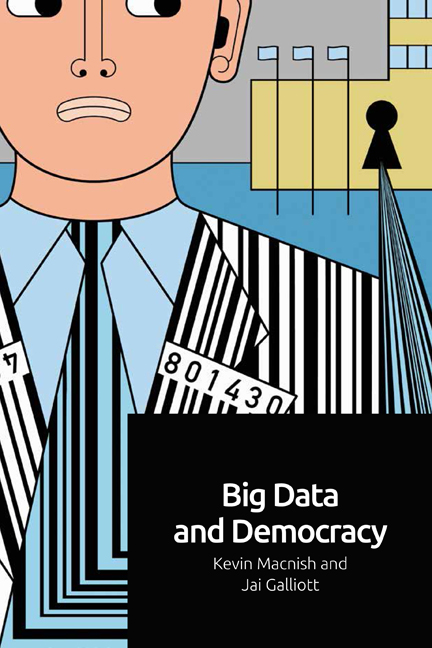Four - Policing with Big Data: DNA Matching vs Crime Prediction
Published online by Cambridge University Press: 17 October 2020
Summary
Many large data sets are relevant to the detection and prosecution of crime . For example, DNA profiles can be extracted from databases and matched with samples collected at crime scenes to aid in the identification of suspects. There is evidence that storage and matching of DNA profiles not only solves particular crimes but reduces crime rates. More controversially, patterns in the intensity and spread of burglaries in a city can inform opinions about where burglaries will occur locally in the future. Since liberal democracies promise the law-abiding that they will protect them from crime, do those jurisdictions not have an obligation to use relevant data sets to prosecute, and, where possible, prevent, crime? Even if the answer is ‘Yes’, those obligations may be limited significantly by liberal rights. Ordinary citizens have rights to pursue law-abiding activities unmolested, and the surveillance underlying some of the relevant data collection and matching may amount to a sort of molestation or at least an invasion of privacy . Besides, pattern recognition in crime data may be affected by bias in choices of characteristics that matter to crime, and data sets are subject to theft, deletion and contamination of various kinds.
In previous work, I have defended large-scale data collection and analysis of data in the prosecution and prevention of the most serious crime, including terrorism (Sorell 2011, 2016, 2018a, 2018b). In particular, I have tended to be sceptical of objections based on privacy to large-scale collection and analysis for those purposes. But, clearly, the propriety of using big data in policing decreases the less serious the relevant crimes are, the more speculative the algorithms generating the predictions and the less well governed the databases. The use of big data is also called into question in jurisdictions that suffer from over-criminalisation, disproportionately severe punishment and very expensive legal representation. Differently, secrecy and the relative accountability of the collectors and users of the data matter to the democratic legitimacy of uses of big data.
Information
- Type
- Chapter
- Information
- Big Data and Democracy , pp. 57 - 70Publisher: Edinburgh University PressPrint publication year: 2020
